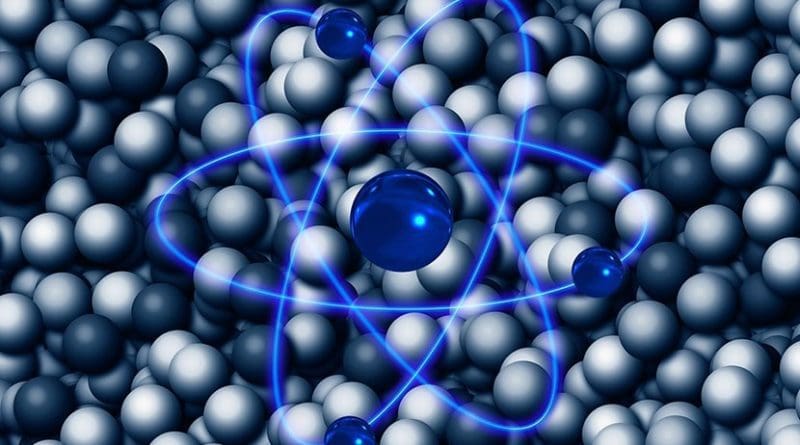How Nuclear Technology Can Help Against COVID-19 – OpEd
In order to overcome the damages caused by Coronavirus pandemic, international collaboration has become important for the nations of the world. States take different methodologies, from national to global, to win the war against this invisible enemy.
Nuclear technology has scope to flourish in this intense phase of the crisis. Recently, the countries which want nuclear testing to identify and monitor the virus and its transmission paths, the International Atomic Agency (IAEA) has announced to deliver diagnosis kits and preparation. In addition, IAEA will offer nuclear detection facilities and support to countries requesting assistance to counter the worldwide dissemination of COVID-19. A new, radioactive diagnostic tool, named Real-Time Reverse Transcription Polymerase Chain Reaction (RT-PCR), is being stepped up in the nuclear-related sector. IAEA has offered training programmes for recipient countries where biosafety and biosecurity protocols will be established during processing and examination to safeguard human and veterinary staff and to avoid more external contamination.
Nuclear medicine is not surprisingly likely to play an essential role in combating the novel coronavirus. The nuclear industry has increasingly become a critical medical area, with a brilliant illustration of how nuclear power safely employs radioactive drugs or radiopharmaceutical compounds for diagnostic or therapeutic purposes. With a competent workforce in nuclear medicine in Pakistan, radioactive research has to be carried out against recent pandemic of COVID-19.
In this regards, Pakistan Society of Nuclear Medicine (PSNM) which was founded in 1995 and act as an umbrella body for Nuclear Medicine practitioners can be used as an effective platform. Moreover, eight Pakistan Atomic Energy Commission’s (PAEC) cancer hospitals in Pakistan are already providing facilities in nuclear medicine to nearly one million patients annually and contributing to UN Sustainable Development Goals on “good health and well-being.” PAEC is also sponsoring the research program in the field of radiochemistry and biochemistry. These research institutes such as Centre for Nuclear and Molecular Studies (CNMS) and Institute of Nuclear Medicine Oncology & Radiotherapy (INOR), can provide specific frameworks to carry out research.
Nuclear techniques such as RT-PCR are valuable instruments for easily identifying and characterizing viruses such as those responsible for COVID-19. This is also not the first time that nuclear technology has treated disease challenges. This recent pandemic also provides Pakistan with an opportunity to further strengthen its partnership with the IAEA. Pakistan has recently been emerged as one of the top beneficiaries of IAEA Technical Assistance in the Member States, due to its successful involvement in the IAEA Technical Cooperation Arrangements, comprehensive professional facilities and providing training to IAEA fellows at PAEC establishments. Pakistan has to collaborate with IAEA to obtain precursors and RT-nuclides along with the technologies needed to manufacture them. But in the end, Pakistan has few choices except to rely more on domestic radiopharmaceuticals.
Pakistan has taken significant steps to cope with COVID-19 as the disease has gained dangerous momentum in the region. The country director of the World Health Organization (WHO) Dr. Palitha Gunarathna Mahipala appreciated Pakistan’s reaction to COVID-19 as “World’s best.” Pakistan has to utilize every mean to fight COVID-19 and this IAEA’s assistance programme could be an effective tool. This assistance programme of IAEA supports the peaceful application of nuclear technology in areas such as human and animal health. It’s funded through the IAEA’s Peaceful Uses Initiative, which was launched in 2010 to mobilize additional funding for such projects.
The added benefits of nuclear medical centres under PAEC supervision are international contacts with more developed countries through IAEA and bilateral relations with friendly countries. In the future, if the initiatives for the growth of this industry are intensively implemented, Pakistan may become a global expert in nuclear medicine. The technological, economic and human resources needed would without a doubt contribute to an increase in participation related to nuclear science in Pakistan where professional scientists already performing exceptionally. Pakistan will profit immensely from it, but the world community is the real beneficiary.
*Syed Zain Jaffery is a student of Current Affairs and Political Science with Masters degree from NUST, Islamabad.

